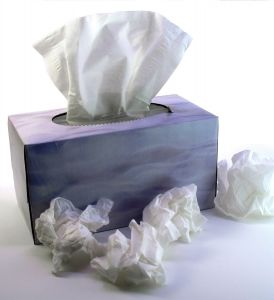Picture this: it’s February, your pile of homework is steadily growing and all you can think about is Valentine’s Day. Suddenly, you feel yourself coming down with something, and before you know it, you are stuck in bed with body aches and a fever for over a week. You miss two tests, a Talley worksheet and you have to cancel your Valentine’s Day date; flu season is here and you didn’t protect yourself ahead of time. Don’t let this happen to you. Here’s what you need to know to avoid the flu and stay healthy this year.
What is influenza?
Influenza viruses cause a contagious respiratory illness also known as the flu. It seems to be a common conception that the flu is just a mild illness; in fact, many people are unaware of how serious it is. In healthy adults it generally results in mild sickness like the common cold, but it can also cause severe illness and even death. The Center for Disease Control reports that every year over 200,000 people are hospitalized and about 36,000 die from the flu.
What are the symptoms?
The flu has symptoms similar to the common cold, such as sneezing, coughing, hoarseness, running and stuffy nose, headaches and fever. It is also characterized by feeling tired, achy and a high fever above 100.5 degrees. Other complications can result from the flu, including bacterial pneumonia, ear infections, sinus infections, dehydration, and worsening of chronic medical conditions such as congestive heart failure, asthma or diabetes.
Why is there a flu “season?”
Each year there are different viruses that appear. This is due to gradual changes of the virus in a process called “antigenic shift.” Each year, vaccines are changed after scientists internationally survey the most likely strains that will circulate. The vaccines are modified each year to protect against new strains. Typically, flu season is in January and February.
How can I protect myself?
Getting the flu vaccination is the first and most important step. This will only protect against specific viruses, however, not bacteria. Therefore it’s important to keep washing your hands often and cover your mouth while you cough or sneeze to protect yourself and others from getting sick.
How does a vaccine help?
An inactivated vaccine contains a dead form of the three most common strains of the influenza virus. Due to antigenic shift, the antibodies that your immune system had built up to fight against the virus no longer recognize it. Once you receive the vaccine, your body begins to develop antibodies to fight the new strain. In order to maintain immunity from the flu, it is only necessary to receive a flu shot once a year. However, it is important to receive it in the fall, as soon as the newest vaccination is realized.
Where can I get the flu shot?
Getting the vaccine has never been easier. Biola’s Health Center is currently offering flu shots until about Thanksgiving. The cost is $15 and walk-in hours are 9:30 a.m. to 11 a.m. and 1 p.m. to 3 p.m. Monday through Friday. They will accept several forms of payment including cash, check, credit, or debit. The Health Center can also recommend medical providers in the area if their times do not work for you.
Don’t wait until you get sick to think about your health this fall. Get your shot!
For more information about the flu and other seasonal health concerns, visit the Biola Health Center’s web site or visit the Center for Disease Control.







